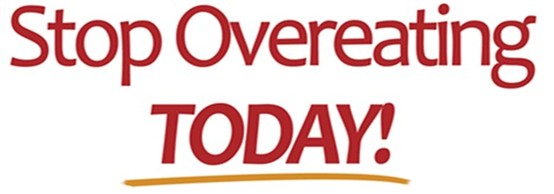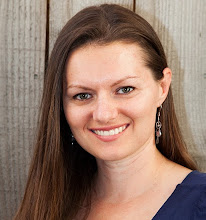
I've got a 9 month old and I love watching her try new foods. She is so decisive about what she likes and doesn't like. When she's trying something she doesn't care for, she makes the funniest faces of disgust and disinterest.
Just like she is decisive when she hates a new food, she is just as decisive when she is full. Sometimes I can't tell if she stops eating just because she is distracted and preoccupied with some new stimulus. So I try to feed her more, especially at night, to ensure I can get a full night's sleep by filling her up. But when she has had enough, she will purse her lips together and move her head away from me and then shout if she really wants to make her point clear, which she often does.
There is no justifying. No inner dialog in a baby's head, "it tastes so good, just one more bite." There is no emotional eating or self-medicating, "I've had such a hard day, eating this will make me feel better." Food is just fuel for her. That's it. It's not her friend or an enemy she punishes herself with by overeating when she's upset with herself. It just is.
How can adults undo all of their justifying, their emotional eating and self-medicating? How can they relinquish their relationship with friend as their friend, enemy, or sometimes both?
Some people may need to go into counseling or attend a local Overeaters Anonymous to identify how their relationship with food got so complex and how they can change it. There is also a self-help option that can help. Here is a free chapter from my book, Stop Overeating Today! that shows you the powerful relationship between our thoughts and what we eat, and how we can change our thoughts for the better. Enjoy!
Those who struggle with overeating feel more vulnerable than usual during the holidays. Thanksgiving, Christmas, Hanukkah, and New Years festivities all center around friends, family, and food. With so many opportunities to overdo it, guilt is a common reaction. Anyone in recovery knows that guilt can be incredibly damaging, acting like a magnifying glass that exaggerates the negatives. Here is a strategy from my book, Stop Overeating Today! (available on Amazon), that teaches how to break free from the guilt cycle.
Take a Vacation from Your Guilt Trip
This tip applies best to all of you who battle regularly with overeating. You may feel that it is a battle you will never win and that you lack the willpower to change.
When I was recovering from my eating disorder, I found that beating myself up and feeling guilty was not an effective way to make a positive change.
I remember one particular Thanksgiving. I was determined to stop eating before I felt full. I wanted to treat Thanksgiving like it was any other meal and not an excuse for overindulgence. As careful as I tried to be, I slipped and ended up eating too much.
At first, I felt very disappointed in myself. I had made so much progress in the former two months, only to “relapse” again. It felt like a defeat. As I sat there marinating in self-loathing, a light bulb went on over my head. I needed to stop feeling terrible and put things into perspective. Had I made a mistake? Yes. Did I regret it? Yes. Did I want to put myself through more self-loathing? No. Did my mistake determine my future? No. Could I move on? Yes. You get the idea.
It’s like I had taken the magnifying glass off of my mistake and was able to see it as a one-time event, not as a pattern of never-ending mistakes. I was able to look back at all of the progress I had made, the hard work I had done, and how far I had come. So what if I messed up once? I could call it a learning experience and move on. No need to hit myself over the head again and again.
Chronic guilt is not an effective way to grow and change. It keeps you focused on the problem. When the focus is on your weaknesses and mistakes, it keeps you from visualizing how you can change and what you can do to solve your problem.
Guilt is consuming and saps your energy. Moreover, it keeps you from remembering what strengths you do have and what progress you have made. Guilt keeps you stuck in a cycle of helplessness. Even if you have taken one step back, take two steps forward and acknowledge you are moving in the right direction.
For more information on the book or to order Stop Overeating Today! visit www.stopovereatingtips.com

